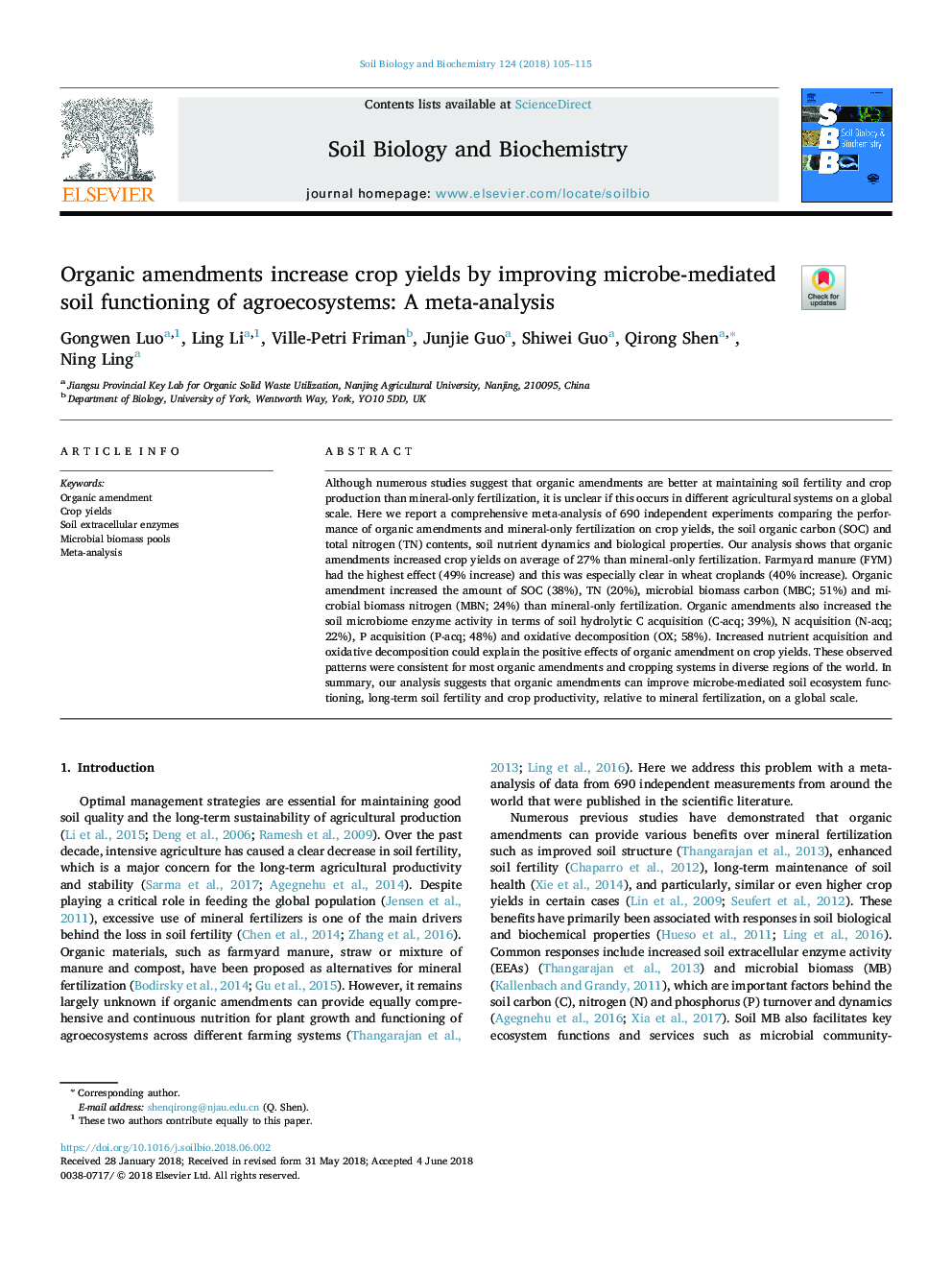| Article ID | Journal | Published Year | Pages | File Type |
|---|---|---|---|---|
| 8362557 | Soil Biology and Biochemistry | 2018 | 11 Pages |
Abstract
Although numerous studies suggest that organic amendments are better at maintaining soil fertility and crop production than mineral-only fertilization, it is unclear if this occurs in different agricultural systems on a global scale. Here we report a comprehensive meta-analysis of 690 independent experiments comparing the performance of organic amendments and mineral-only fertilization on crop yields, the soil organic carbon (SOC) and total nitrogen (TN) contents, soil nutrient dynamics and biological properties. Our analysis shows that organic amendments increased crop yields on average of 27% than mineral-only fertilization. Farmyard manure (FYM) had the highest effect (49% increase) and this was especially clear in wheat croplands (40% increase). Organic amendment increased the amount of SOC (38%), TN (20%), microbial biomass carbon (MBC; 51%) and microbial biomass nitrogen (MBN; 24%) than mineral-only fertilization. Organic amendments also increased the soil microbiome enzyme activity in terms of soil hydrolytic C acquisition (C-acq; 39%), N acquisition (N-acq; 22%), P acquisition (P-acq; 48%) and oxidative decomposition (OX; 58%). Increased nutrient acquisition and oxidative decomposition could explain the positive effects of organic amendment on crop yields. These observed patterns were consistent for most organic amendments and cropping systems in diverse regions of the world. In summary, our analysis suggests that organic amendments can improve microbe-mediated soil ecosystem functioning, long-term soil fertility and crop productivity, relative to mineral fertilization, on a global scale.
Related Topics
Life Sciences
Agricultural and Biological Sciences
Soil Science
Authors
Gongwen Luo, Ling Li, Ville-Petri Friman, Junjie Guo, Shiwei Guo, Qirong Shen, Ning Ling,
